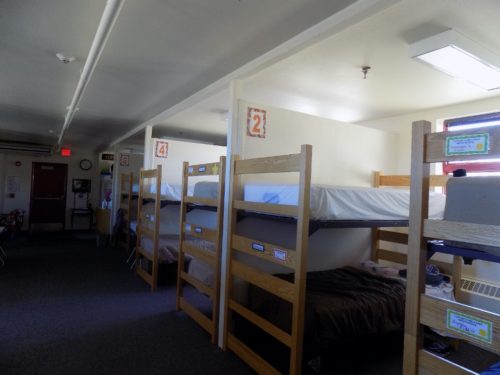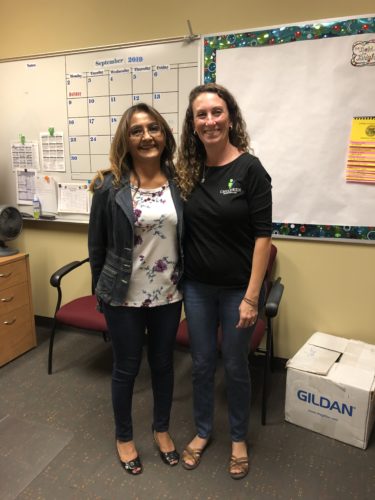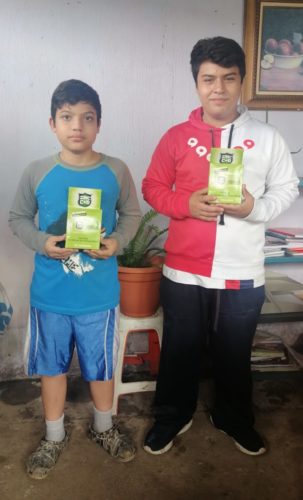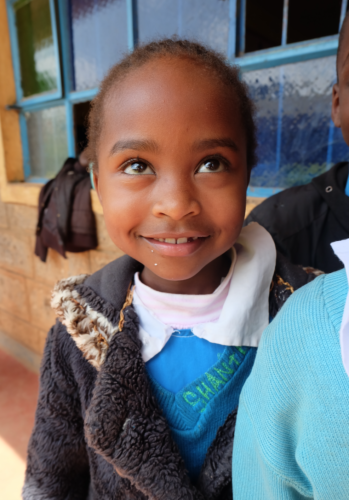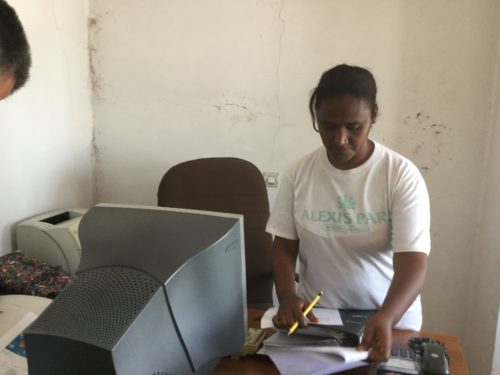Even by Navajo reservation standards, our affiliated project, the Lake Valley Boarding School, is located in an incredibly remote area of New Mexico, which makes our partnership with the school incredibly valuable to both the children and the school’s administrators. In fact, there are a total of 32 students in attendance at Lake Valley – each of which is sponsored through our sponsorship program.
“Over the years, there has been talk of closing the school and transporting the children to the nearest little town, which is Crownpoint, where the school has its post office box,” explained Children Incorporated Director of U.S. Programs, Renée Kube.
“Since that time, we have been able to provide the items they requested as well as support students during the COVID-19 outbreak with food to take home while they moved to remote learning in 2020 and the spring of 2021,” said Renée.
“However, the school’s isolation makes the prospect of consolidation doubtful. The high desert region is arid, but it is not without rain. When the rains come, transportation in some areas comes to a virtual standstill. The mud is deep and thick, and many of the roads are in bad shape. Therefore, the school is quite essential for the few families that send their children there and our sponsors help these students more than they can imagine.”
Meeting Veronica and Jeannette
“Our volunteer co-coordinators at Lake Valley are Veronica and Jeanette. Both work in the school dormitory, as many of the children live on the outskirts of the districts, and the roads are sometimes too bad for a daily commute. The children stay in the dorm until Friday afternoon, and they return to the dorm on Sunday afternoon, except during summer, winter breaks and holidays. The ladies are a great and supportive team, and it’s obvious they’re devoted to every child,” said Renée.
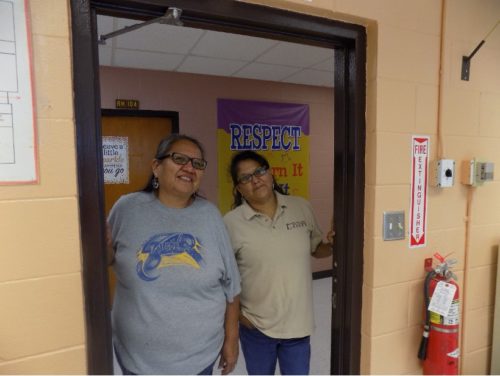
Our co-volunteer coordinators, Jeanette and Veronica
“During my last visit to the school in 2019, we began our tour outside the main office when several boys ran up to show Veronica and Jeanette their team’s sports trophies. Of the 36 students from the area who competed in the track event, five were from Lake Valley. Jeanette and Veronica introduced me to George and Douglas* who live with their parents and one sister. Their mom works as a clerical assistant, and their father has erratic work as a laborer. His pay is good when he can find work, but he goes for long periods without. Their combined pay is below poverty level.”
“This is the situation for most of our sponsored kids at Lake Valley. Work is inconsistent, and daily commutes are grueling,” said Renée.
Supporting special needs and beyond
“After meeting the children, we then went on to the dorm and discussed our program. The ladies do all of their shopping at the Walmart in Farmington because they feel the funds stretch farthest when they drive further to get less expensive items. During my visit, they requested Hope In Action Funding for eyeglasses for two of the students who have vision issues due to their albinism. Veronica and Jeanette also requested to be considered if any funds become available for their playground, books in the dorm, tablets for the dorm, arts and crafts supplies for the dorm, and seeds and soil for the school greenhouse.”
“Since that time, we have been able to provide the items they requested as well as support students during the COVID-19 outbreak with food to take home while they moved to remote learning in 2020 and the spring of 2021,” said Renée.
*Names changed to protect the children.
***
How do I sponsor a child in the united states?
You can sponsor a child in the United States in one of three ways: call our office at 1-800-538-5381 and speak with one of our staff members; email us at sponsorship@children-inc.org; or go online to our sponsorship portal, create an account, and search for a child in United States that is available for sponsorship.

